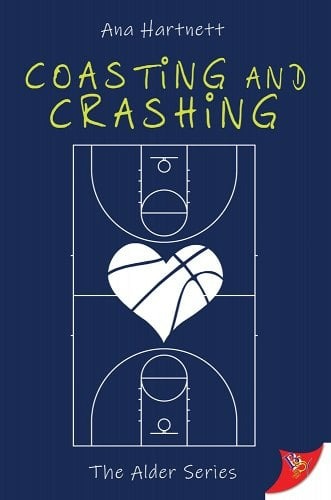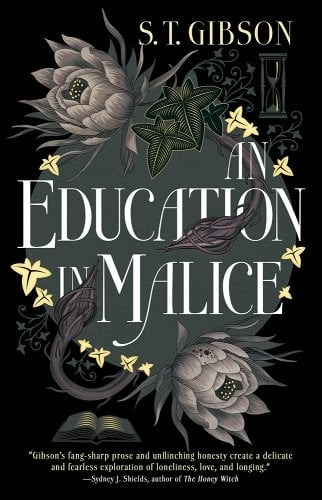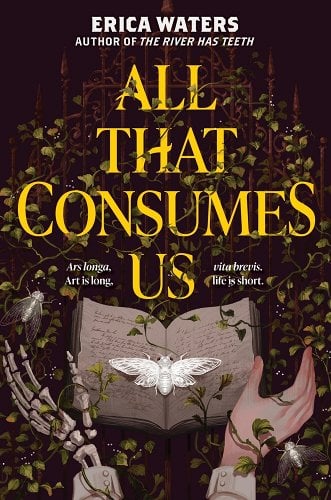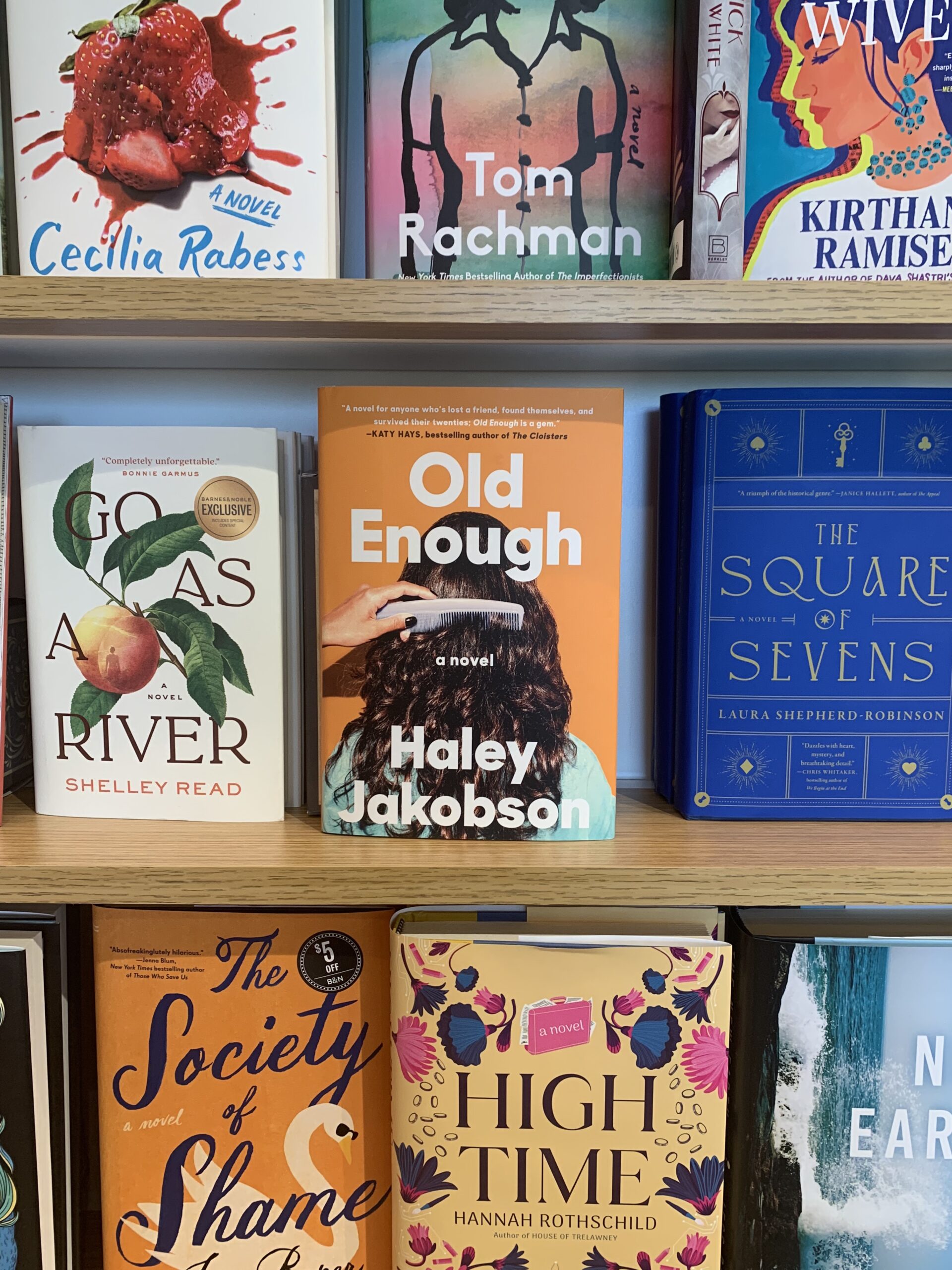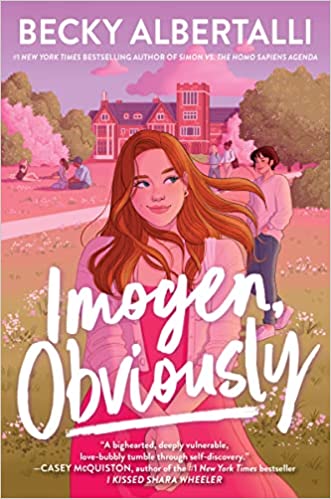Buy this from Bookshop.org to support local bookstores and the Lesbrary! The Imposition of Unnecessary Obstacles is Malka Older’s second novella in the Mossa and Pleiti series, set in the far future, when the last of humanity is in a thriving colony on Jupiter amidst an expanding series of platforms and rails. Like the theRead More
A Belated Bi Awakening: Imogen, Obviously by Becky Albertalli
Buy this from Bookshop.org to support local bookstores and the Lesbrary! Imogen Scott has endless experience as a straight queer ally. Her friends are pan and bi, her sister is out, and she never misses a Pride Alliance meeting. While visiting her best friend Lili at college, who has her own little queer community, ImogenRead More
A Slam Dunk Sapphic Romance: Coasting and Crashing by Ana Hartnett
Buy this from Bookshop.org to support local bookstores and the Lesbrary! With March Madness continuing into April, I decided to start my month with Ana Hartnett’s Coasting and Crashing, the third book in her sapphic contemporary romance series set at the fictional Alder University. This time, the story revolved around players on the university’s basketball team. Read More
An Obsessive, Erotic, Vampire Gothic: An Education in Malice by S.T. Gibson
Buy this from Bookshop.org to support local bookstores and the Lesbrary! I feel as though all my adult life I have been wishing for a Carmilla retelling that really illuminates the heart of the original novella—the obsession, intensity, eroticism, and power struggle between Carmilla and Laura that makes the text one of the most lasting examples ofRead More
A Literal Dead Poets’ Society: All That Consumes Us by Erica Waters
Buy this from Bookshop.org to support local bookstores and the Lesbrary! The days have started getting shorter as darkness takes up more and more space every day. The evening air isn’t quite cold enough to keep you inside, but every gust of wind chills to the bone, and the woods behind my apartment are filledRead More
Healing in Queer Community: Old Enough by Haley Jakobson
Thank you to PENGUIN GROUP Dutton and Netgalley for this E-ARC in exchange for an honest review. (Published June 20, 2023) I’ve followed Haley Jakobson’s social media for a while, so I was thrilled to hear news of her debut novel. And let me say, it did not disappoint! Old Enough follows our main characterRead More
The Perfect Sapphic September Read: The Adult by Bronwyn Fischer
Bookshop.org Affiliate Link The moody, fraught, and atmospheric energy of Bronwyn Fischer’s novel The Adult (Random House, 2023) is the perfect September read that reflects the joy and the chaos of a new academic year! The Adult follows Natalie, an eighteen-year-old student who has just arrived in Toronto to begin her first year of university. Moving from herRead More
The Enthusiastic Ally to Bisexual Pipeline: Imogen, Obviously by Becky Albertalli
Amazon Affiliate Link | Bookshop.org Affiliate Link Now that I’m twice the age of many of the protagonists in Young Adult books, I have a different relationship with them. I still read YA, but I find myself feeling protective of the main characters instead of relating to them. Nothing exemplified that shift more than readingRead More
Nat reviews How To Excavate a Heart by Jake Maia Arlow
Amazon Affiliate Link | Bookshop.org Affiliate Link Sweet yet angsty. Coming of age and coming out stories. A meet cute that’s…not so cute. Jewish holiday rom com. All the big, tender feels of young love. Non-stop cackling, except when you take a break to have a good cry. A prominently featured corgi. These are aRead More
Danika reviews She Gets the Girl by Rachael Lippincott and Alyson Derrick
Amazon Affiliate Link | Bookshop.org Affiliate Link Do you want to read a fun and absorbing new adult F/F romance written by a wife/wife author team? Of course you do. So you can probably stop reading the review now. Go ahead and grab it. This follows two point of view characters: Alex and Molly. AlexRead More
